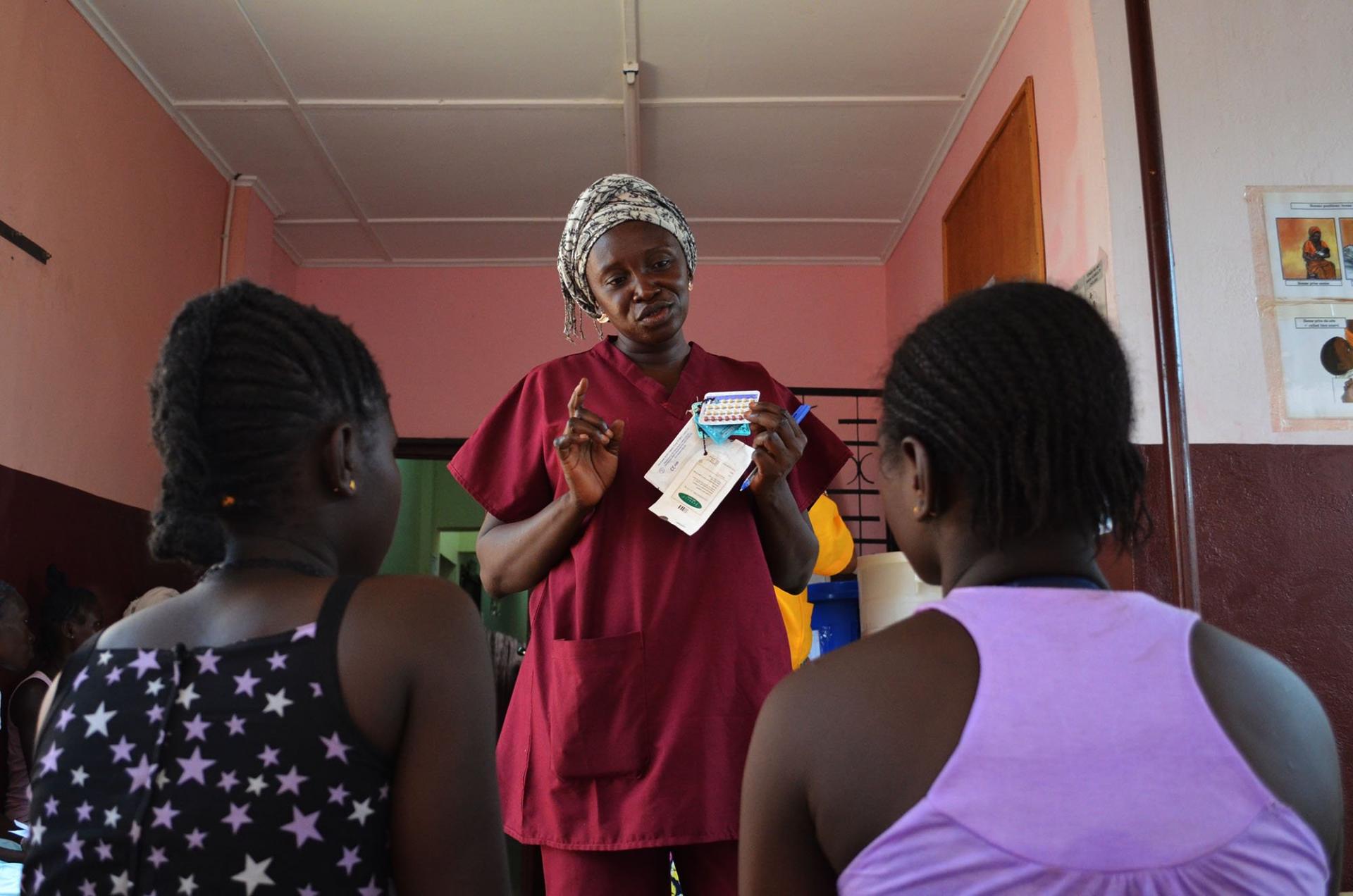Every week MSF teams in Bangui, Central African Republic, witness the consequences of unsafe abortions on women’s health and on the wider community.
Marta Vaquero Rodriguez, a midwife in MSF’s sexual and reproductive health project in Bangui, explains the severe consequences on women’s lives caused by the lack of access to obstetric care and contraception.
You’ve just spent 5 months in Bangui. What struck you the most about the current situation?
According to the World Health Organisation (WHO), postpartum bleeding is the leading cause of maternal death worldwide – but here, its abortions. In Bangui, most of the obstetric complications that we receive in the maternity unit at Castors are due to unsafe abortions carried out in non-medical conditions.
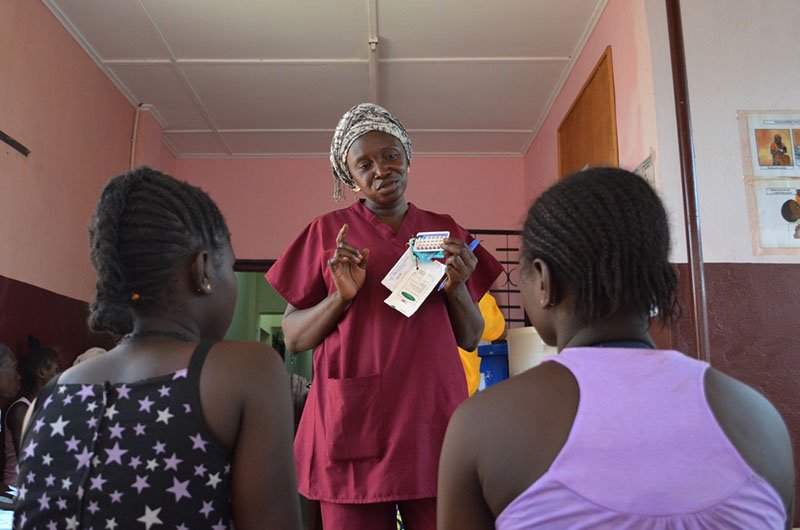
For me, it is unacceptable to see women suffer and often die from an avoidable cause.
Even more shocking is that this is the only cause of maternal death that is completely avoidable, provided that women are able to use family planning to avoid unwanted pregnancies, and/or have access to safe abortion care.
According to the WHO, four women in ten worldwide who undergo unsafe abortions develop complications, and nearly 50,000 women die every year - almost all of them in developing countries.
This is what we see in Bangui, where the contraceptive services available are inadequate for the most part, despite efforts from the government and humanitarian partners.
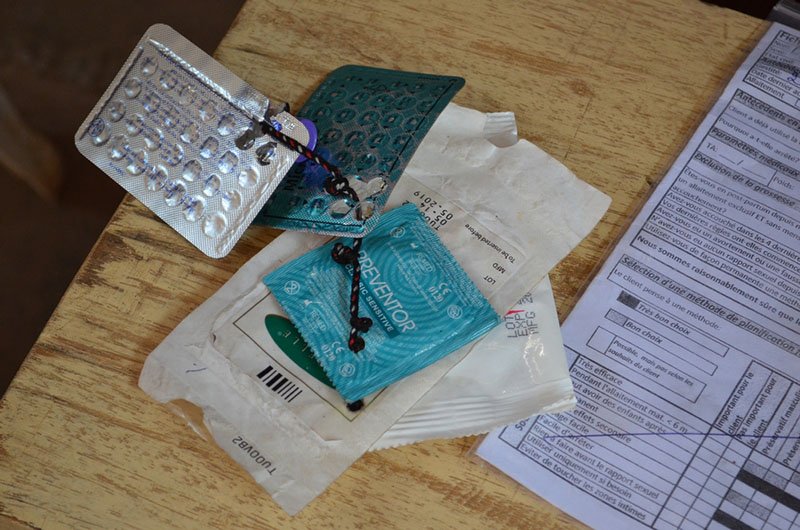
Law in the Central African Republic allows termination of pregnancy in some circumstances including threats to the health of the woman; but considering the dearth of medical providers in the country, concrete access to medicalized abortion is very restricted.
This means that some women who don’t want to go ahead with their pregnancies go looking for help within the community, and turn to people who lack the necessary skills, often working in environments that don’t conform to minimum medical standards.
In C.A.R., the high rate of severe complications is particularly linked to the fact that most unsafe abortions are performed using ‘traumatic’ methods – that’s to say rods, wires or other sharp instruments are inserted into the uterus.
These practices lead to serious injuries, including perforations, with all the physical complications that you can imagine.
Can you tell us more about the risks and consequences linked to unsafe abortions?
Just a week ago we received a 19-year-old woman, Laura, who had to have an emergency operation in our maternity unit following an unsafe abortion.
The medical team had to remove her perforated uterus to save her life. She will never have children again. It’s life-changing for this young woman. But all the same she survived, which is not the case for everyone.
The MSF-run Castor maternity in Bangui is one of the largest in the country and is specialized in difficult pregnancies and births.
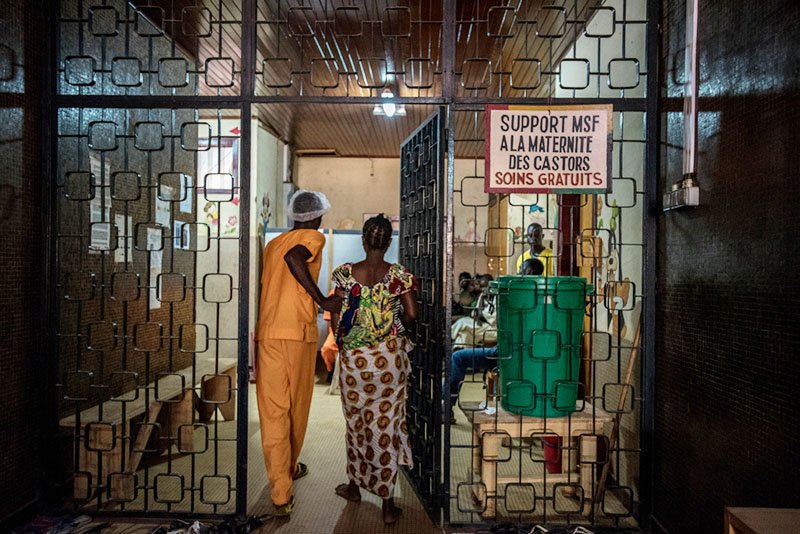
Every life that we do not manage to save there is a tragedy; but the fact that a third of the lost lives are those of young, healthy women and girls who die after an unsafe abortion is a scandal.
In addition, a woman who has undergone an unsafe abortion, often experiencing complications, has walked a certain path facing the societal taboo – a path that may involve psychological suffering: the decision itself; the fear of being discovered by others, the stigmatisation of certain pregnancies.
So sometimes there are psychological consequences that will linger after an unsafe abortion, which can lead to withdrawal and to a feeling of guilt, but also to being isolated from the community – because due to the obvious physical consequences, the community might find out what’s happened.
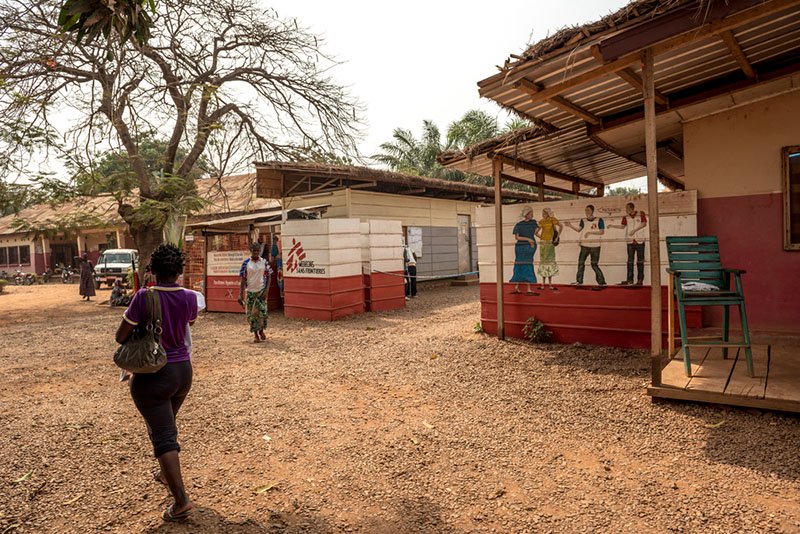
If it’s a young girl who is still at school, she might have difficulty carrying on with her studies, forming a relationship with a partner, etc.
And then there are all the social consequences, which are also consequences for the community. We forget sometimes, but a good chunk of these patients (43% of them) already have children.
They are mothers who for one reason or another do not want to be pregnant. Sometimes they lose their lives, leaving orphans behind, and it’s the whole community that suffers.
What can be done to avoid this?
In the first instance, access to contraception needs to be easier for all women and girls that require it, independent of their personal situation or their age.
Although it’s a right that the state recognises, contraception is not always available; unfortunately very frequently there are gaps in stock in the different health centres in town. And even when the products are available, their cost put them outside the reach of these women.
For example, a progesterone implant costs 7.5 euros, a packet of pills 1.5 euros… while in this country, which is one of the poorest in the world, more than 80% of the population lives on less than 2 euros a day.
While contraception is not seen as an emergency by the agencies that are responsible for it, or by the Ministry of Health, it’s essential that women have access to it in order to prevent this avoidable tragedy.
Doctors Without Borders supports the maternity unit in Gbaya Dombia, in the PK5 neighbourhood, and the Castors maternity unit in Bangui.
The team there provides obstetric and neonatal care (including emergency care in the maternity unit in Castors, which is one of the largest in the country), abortion-related medical care, treatment for victims of sexual violence, and contraceptive services for women.
During the first half of 2017, 4020 women gave birth in the maternity unit in Castors and 279 women in Gbaya Dombia. In Gbaya Dombia, where contraceptive services are open to all, the family planning service recorded 1724 initial consultations.
Find out more about MSF's work in the Central African Republic.
